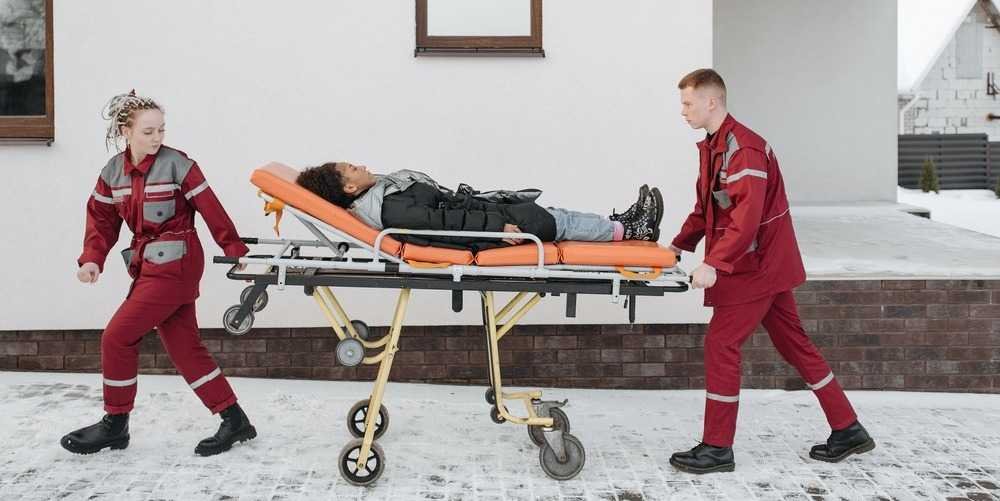
How to Save Yourself From Myocardial Infarction? 4 Major Rumors Debunked! Learn 3 First Aid Tips for Myocardial Infarction
Rumors and false information about “self-rescue for myocardial infarction” are flying everywhere; when a myocardial infarction occurs, many wrong actions will not only fail to save lives, but may also delay the time to call for help. The following will dispel the 4 major myths about self-rescue for myocardial infarction and teach you 3 correct first aid methods.
Rumor 1: Cough vigorously
This rumor was not only spread in the UK, but also became popular abroad. It was called Cough CPR (cough cardiopulmonary resuscitation). Theoretically, coughing vigorously will increase the pressure in the chest and maintain blood flow. Therefore, a conscious and responsive person “may be able” to cough vigorously to allow blood to continue flowing to the brain, delaying the loss of consciousness or waiting for arrhythmia ( Arrhythmia) recovery.
Wait, weren’t we just talking about myocardial infarction? Yes, the biggest difference between myocardial infarction and arrhythmia is that the heart of patients with myocardial infarction can still beat and pump blood normally, so vigorous coughing is basically ineffective for patients with myocardial infarction, unless the symptoms of myocardial infarction cause arrhythmia or sudden cardiac arrest, vigorous coughing may be useful, but the premise is that the patient must maintain consciousness and be able to distinguish whether he has an arrhythmia, otherwise it will be in vain.
The American Heart Association has solemnly stated that when people feel that they have myocardial infarction, they should not think that coughing vigorously is a self-rescue method and delay the golden rescue time. The correct approach is still to call 999 as soon as possible before the patient notices discomfort and loses consciousness.
Rumor 2: Slapping elbows are bent inward
This rumor claims that tapping the pericardial meridian in the inner bend of the elbow can clear the air circulation and open up the plaque blocking the blood vessels, thereby relieving the risk of myocardial infarction. ” There are even many videos demonstrating how to perform this self-rescue method. However, doctors do not agree with this method, and there are no clinical cases of rescuing patients with myocardial infarction in this way.
Rumor 3: Tie binding, ischemia adaptation method
There have been TV and media reports before that “If someone around you has a myocardial infarction, you can actually save it with a tie and a sock…” The most common myocardial infarction and main cause of emergencies such as heart disease. For both arterial dissection and pulmonary embolism, the rumored “tie binding” and “ischemic adaptation method” cannot be used to open up the blocked coronary arteries and ischemic myocardium. Emergency medical treatment is still the best policy.
Rumor 4: Sublingual tablets and aspirin can help yourself?
You may have heard the rumor that “taking sublingual tablets (nitroglycerin) or aspirin during myocardial infarction can relieve chest pain symptoms.” However, these drugs not only have different effects, but also have risks.
Sublingual tablets are actually nitroglycerin drugs, whose main function is to dilate blood vessels, while aspirin is an antiplatelet drug, which can prevent platelets from aggregating to form blood clots. As far as the pathology of myocardial infarction is concerned, these two drugs can indeed relieve symptoms. However, do you really know whether your discomfort is caused by myocardial infarction?
If the patient has low blood pressure, taking sublingual tablets without authorization may cause hypotension and cause fainting; aspirin can be fatal to patients who mistakenly mistake aortic dissection or other bleeding symptoms for myocardial infarction.
Did you discover it? The principle of prescribing the right medicine is the same. Taking medicine casually can easily cause counter-effects.
Generally speaking, patients who use sublingual tablets usually have experienced angina symptoms and have been prescribed sublingual tablets by a physician as a reliever when symptoms occur. If you also suspect that you have cardiovascular disease or related risks, it is recommended that you go to the hospital for a complete cardiovascular risk assessment and examination. This will not only enable early treatment, but also allow you to save yourself immediately when myocardial infarction strikes without regrets.
These 3 tips for myocardial infarction first aid are correct!
“Knowledge is power.” If you can develop the habit and knowledge of paying attention to your own heart health, you can often avoid being caught off guard or mistakenly believing in myths when you or your relatives or friends suffer from myocardial infarction.
If you suspect that you or your relatives or friends are suffering from an emergency myocardial infarction (feeling pressure on your chest, chest pain), please stop any activities immediately and refer to the following 3 methods for emergency rescue:
- Have the patient sit or lie down and confirm whether there is a heartbeat and consciousness
- Dial 999 immediately or ask someone else to help you call an ambulance.
- When the patient loses consciousness, CPR or AED should be used urgently


Since the cause of myocardial infarction – coronary artery blockage, it will not get better by itself just because you rest in place or use the above three self-rescue methods. The only way is to go to the hospital for cardiac catheterization or combined with drug treatment, so you must Seize the golden time to request professional medical assistance as soon as possible












